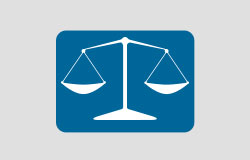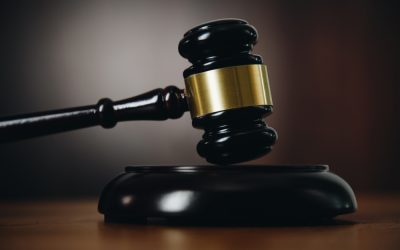You can face criminal charges for helping with a crime you didn’t commit. Under California Penal Code §32, helping someone avoid arrest or punishment—by hiding them, giving them a ride, or destroying physical evidence—can result in charges of accessory after the fact.
This law applies to a wide range of criminal activities, from armed robbery to DUI. Los Angeles attorneys often see accessory charges filed when someone helps a driver flee a crash or avoid testing.
Under California penal codes, prosecutors must prove knowledge and criminal intent to establish criminal liability beyond a reasonable doubt.
What Counts as Accessory After the Fact?
Not every bad decision leads to a felony offense. However, actions such as hiding someone from law enforcement officers, lying during questioning, or tampering with physical evidence may all fall under the crime of accessory.
The court doesn’t need proof of the original felony to prosecute an accessory—just evidence that you knew about it and chose to help after the fact.
Examples include:
- Letting a suspect hide in your home
- Giving someone money or clothes to avoid capture
- Lying to law enforcement officials about their whereabouts
- Deleting surveillance footage
Even if you didn’t commit the original crime, you can still face severe penalties. Prosecutors can file charges of accessory even if the primary suspect never gets arrested or charged.
Is Accessory After the Fact a Felony or Misdemeanor?
Accessory after the fact is a wobbler offense in California. That means the district attorney can charge it as either a misdemeanor offense or a felony crime, depending on the circumstances. The severity of the original crime, your prior record, and the degree of help you gave can all influence the level of charges.
- Misdemeanor accessory charges carry up to one year in county jail, and misdemeanor penalties like community service or misdemeanor probation.
- Felony accessory charges may lead to a prison term of 16 months, two years, or three years, along with formal probation and other felony penalties.
In either case, a conviction brings collateral consequences, including immigration consequences, loss of employment opportunities, and a permanent criminal conviction on your record.
Common Defenses to Accessory Charges
A knowledgeable defense attorney may use several legal defenses, depending on the facts of your case. These defenses aim to create reasonable doubt or show an absence of intent. Some of the most common defenses include:
- Lack of intent: You didn’t know about the underlying offense, or didn’t mean to help them escape.
- Duress defense: You acted out of fear for your safety.
- Insufficient evidence: Prosecutors lack proof of criminal activities or requisite intent.
- False accusation: You were falsely identified or blamed.
The right defense depends on your actions, the original crime, and the physical evidence. A skilled attorney evaluates your case, identifies the weak points in the state’s argument, and builds legal defenses that fit the facts and the law. In some cases, these defenses may even prevent the charges of accessory from going to trial.
Legal Process and Potential Consequences
The legal process begins with an arrest warrant or criminal filings. Prosecutors evaluate the facts, including the severity of the original felony and your level of assistance.
If charges stick, the case moves into pretrial activities in a criminal case, including the initial hearing (arraignment), motion practice, and discovery, before heading to trial.
Accessory charges may attach to a wide range of underlying crimes—everything from theft and armed robbery to homicide or DUI. Lawyers often handle accessory cases involving escape from arrest after drunk driving crashes.
Even if the underlying crime qualifies as a strike offense or violent crime, you may still be eligible for post-conviction options. These include expungement, reduction to a misdemeanor conviction, or early completion of probation.
Felony Accessory vs. Conspiracy
Accessory charges differ from criminal conspiracy in one key way. A conspiracy involves agreeing to commit a crime before it happens. An accessory charge comes after the fact.
You cannot face both conspiracy charges and accessory charges for the same criminal offense unless you took part in both stages. Understanding this difference between accessories and co-conspirators helps shape defense strategy.
Accessory charges also differ from aiding and abetting, which refers to helping during the commission of the crime. In contrast, accessories help after the original felony.
Real-World Examples from the Los Angeles Area
Law enforcement agencies across California take aggressive action against people they believe helped suspects after crimes. Prosecutors file criminal charges even when the help seemed small or driven by emotion.
Some defendants try to hide family members or destroy evidence. Others get pulled into the system without understanding the potential consequences. Los Angeles DUI lawyers have worked with many clients against accessory allegations stemming from DUI crashes or related criminal charges.
How an Experienced Criminal Defense Attorney Can Help
A knowledgeable defense attorney may use several legal defenses, depending on the facts of your case. These defenses aim to create reasonable doubt or show an absence of intent. Some of the most common defenses include:
Our network includes experienced attorneys who can:
- Review the physical evidence
- Challenge law enforcement conduct
- Argue for lack of intent
- Explain the difference between accessories and conspirators
- Pursue alternatives like community service or a probation sentence
- Identify defenses to accessory rooted in the original crime or specific legal framework
You deserve legal assistance from someone who knows how to challenge felony charges, negotiate for lesser penalties, and protect you from a potential jail term. Even in cases involving serious underlying crimes, experienced attorneys may reduce your charges or get them dropped entirely.
Speak With Los Angeles DUI Lawyers About Accessory Charges
California law punishes the crime of accessory with harsh penalties, even when you didn’t commit the original felony. Whether you face misdemeanor accessory or felony accessory charges, you need someone who understands the legal process and knows how to push back.
Los Angeles DUI lawyers work with individuals charged with a wide range of criminal offenses, including accessory, conspiracy, and DUI-related crimes. If you helped someone after the fact, you may still have legal options and defenses to accessory charges that could protect your record and your future.
You don’t have to wait until you’re on the brink of conviction. Contact Los Angeles DUI Lawyer now to explore defense legal strategies and get connected with a reliable attorney in your area.







